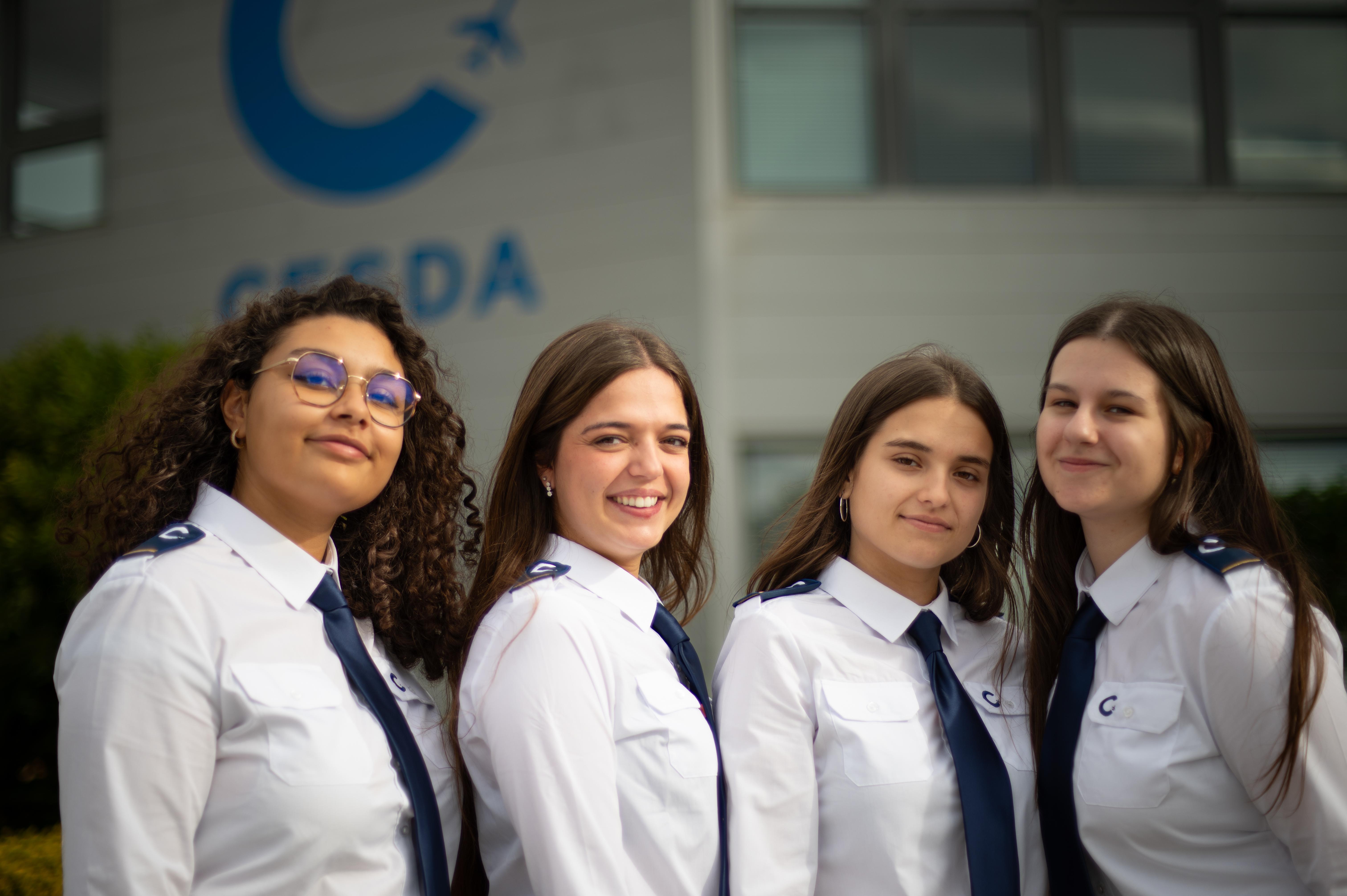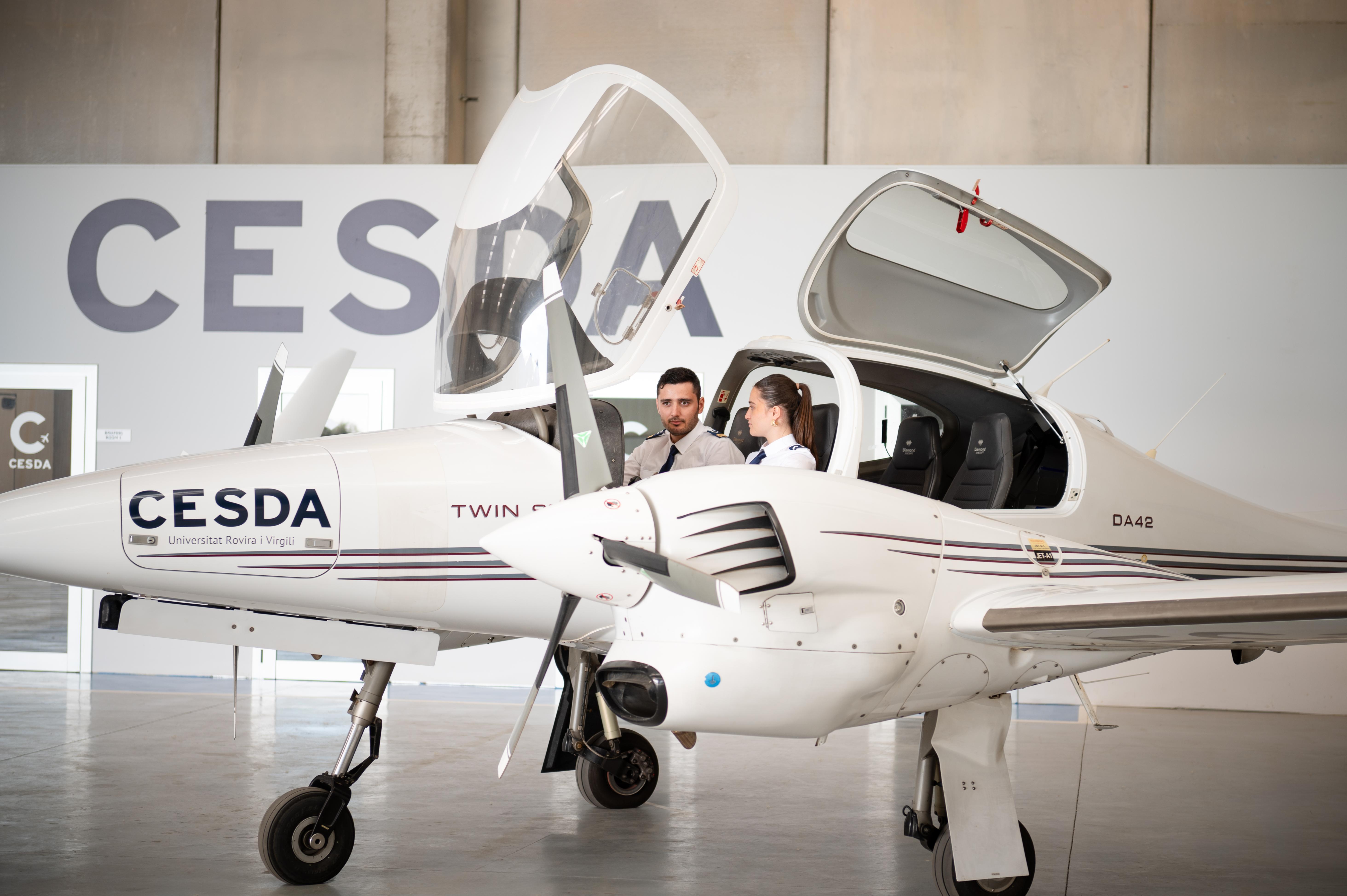The Bachelor's Degree in Commercial Aviation Pilot and Air Operations is designed to train professional pilots of the highest quality with the utmost employability.
The training you obtain on the Bachelor's Degree in Commercial Pilot will enable you to become a highly trained professional, ready to meet the challenges of modern commercial aviation and take your career to the levels you want. You set the limits.
The syllabus contains the following subjects:
Course 0 is a preparatory course in mathematics, prior to starting commercial pilot training at CESDA (in September). It is aimed at new students who do not come from a science or technology background.
First Term
Second Term
Annual
First Term
Second term
Annual
First Term
Second Term
Annual
First Term
Second Term
Electives to be chosen by the student
 In addition, these are some of the sections that you will have to take and pass:
In addition, these are some of the sections that you will have to take and pass:
These are other courses and exams you will have to do:
13 theoretical exams
These are 13 exams of the FCL subjects that are carried out in Madrid or Barcelona. You will do them between 3rd and 4th year.
CPL Exam
You will be tested in real flight with an external examiner and must demonstrate the basic skills to obtain your commercial pilot license.
Instrumental rating exam
In this real flight exam, you will pass an instrument flight exam, with an external examiner.
Single Engine Exam
This real flight exam consists of demonstrating that you fly single-engine airplanes well, and it will be with an external examiner.
MCC Course
This is one of the most important courses to prepare you as an airline pilot, MCC means multi crew course, and it prepares you to know how to work as a team between the pilot and the co-pilot in airplane cabins with two crew members. CESDA's MCC course is one of the best in Europe, with a simulator duration twice as long as most schools, and on an Airbus A320 simulator. In addition, it contains a much more complete theoretical phase than the average. The instructors are Vueling and Iberia pilots. You will enjoy and learn.
UPRT Course
This Upset Prevention and Recovery Training course is mandatory to obtain the license and is included in the degree registration. It trains you to learn to avoid entering situations of loss of control of the aircraft and learn to get out of them if they occur. Very specific hours of flight are carried out in which the plane is placed in unwanted situations and the maneuvers are learned to regain control.
PBN Course
This DA42 theoretical and simulator course is also mandatory and included in the degree registration. It trains you in the new satellite air navigation processes.
ICAO English exam
Graduation
If you have arrived here you will be prepared to work as a pilot. The graduation ceremony is very special, where we invite family members and celebrate the graduation of the class.
License issuance
Now, with this license granted, you will be able to apply for calls from airline companies.
Issuance of the degree title
This title accredits all the work you have done, all the learning you have incorporated, and your training as a highly professional Commercial Pilot trained at CESDA. It is a title that you have earned and it is for life.
Submit to airline call
Very good, you have already passed our degree, the next step is to apply for the calls that different companies open in search of new professionals.
At CESDA we will help and advise you on whatever you need, and remember that we have a special agreement with Vueling, in which our students start with the advantage of meeting the requirements that this company requires when hiring. In addition, the CESDA Professional Integration department can also help you open other doors, and you will have greater options the better you have demonstrated your commitment and results throughout your degree at CESDA.
Perform type rating
Once you have been admitted to one of the companies, you will have to undergo a new training for the planes you will fly.
This course consists of learning to be a co-pilot of a complex commercial aircraft, such as an A320 or a B737 typically, and once passed you will be able to work in the cockpit and pilot one of the planes of your dreams.
Work as a co-pilot
Congratulations, you are now in the cockpit as co-pilot. Now begins a period of flight hours to train you to, one day, be a flight commander and be the person most responsible for the plane.
The Bachelor's Degree in Commercial Pilot falls within the Engineering and Architecture Knowledge Area. For this reason, the structure of competences ensures that you acquire the basic engineering skills necessary to work properly as a professional pilot in the field of civil aviation and aviation management.
The main objectives are:
